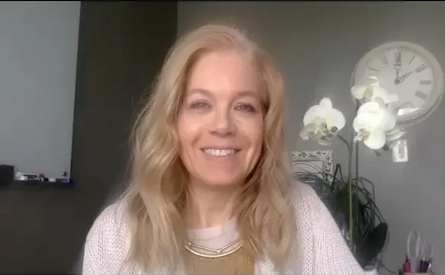Jennifer Hnat, RDN, LD, is an experienced dietitian who thought she knew what mindful eating was about and believed she had a healthy relationship with food. As she shares in this deeply personal conversation, “incorporating the mindful eating skills I learned during the Am I Hungry? mindful eating training in my private practice completely changed the trajectory of my business!”
She was familiar with mindful eating but wasn’t open to it at first. “In my head I was thinking, I already have this piece down… I’m good; I don’t need to learn this—yet!” We call that the “I already know that” phenomenon (learn more about IAKT here).
Common Misconceptions about Mindful Eating
Jennifer and Michelle (founder of Am I Hungry? Mindful Eating Programs and Training) agree that misconceptions about mindful eating are common. Here are just a few they explored during their conversation:
- Mindful eating means being really conscious about what you eat.
Mindful eating is not about mind-full eating! Click on this link to learn more about this myth: Isn’t mindful eating just paying more attention to what you eat? For example, in her introduction, Jennifer described herself as a “plant-based” dietitian but later qualifies that doesn’t mean “plant exclusive.” Instead, she encourages experimentation, curiosity, and noticing how what you eat makes you feel so you can make decisions for yourself (even if that means you decide a plant-based diet isn’t right for you!). - Mindful eating is about counting the number of times you chew.
“I didn’t realize those were just more diet rules… It’s really easy when you are teaching those types of skills for it to fall into diet behaviors… instead of connecting with your body and listening to that intuitive wisdom.” - Mindful eating isn’t that important for nutrition professionals.
“If I could do a rewind, the mindful eating piece would have been an imperative part of any nutrition and dietetic program… now that I see the profound shifts that take place with my clients.” - Mindful eating is easy.
Mindful eating concepts are relatively simple but that’s not the same thing as easy! Jennifer says that at first, was “hyper-aware of what’s going on with you and your relationship with food and your sensations and your feelings. It gets easy, then it gets hard, and then it gets easier.“ - Mindfulness is a religion.
Although the roots of mindfulness is in Buddhism, mindfulness-and mindful eating-is not a religion. Jennifer has found a number of mindfulness skills to be very effective in her patient counseling, including curiosity, nonjudgment, compassion, exploration, listening to your body, and learning from every situation–even those that don’t go well. She’s discovered that these skills have shifted not only her personal relationship with food but the way she goes about in the world. - Mindful eating is simply about tasting and savoring food.
Jennifer says that she enjoys food on a whole new level now. Her husband says she has become a foodie because she eats what she enjoys and enjoys what she eats! But it is more than that. Jennifer shared an example about craving frosting. Mindful eating gave her the ability to be curious about why she wanted that particular food, choose to eat it without guilt, and feel satisfied rather than ashamed after eating it. - Mindful eating is for weight loss.
Am I Hungry? is a weight-neutral program, and Jennifer now agrees. She urges her patients to “Put weight loss on the back burner and reframe your relationship with food, so you can get to the point where you can eat all the foods—whatever makes you feel healthy, whatever used to be forbidden.” It’s really about clearing up all the “head space” that the obsession with dieting, food, and weight was taking up.
Jennifer also touched on a lot of other topics during this conversation, including her past restrictive approach to eating (read What if I still struggle with my eating?), bariatric surgery, what she would say to a dietitian who is thinking about mindful eating training, fatphobia, and much more!

